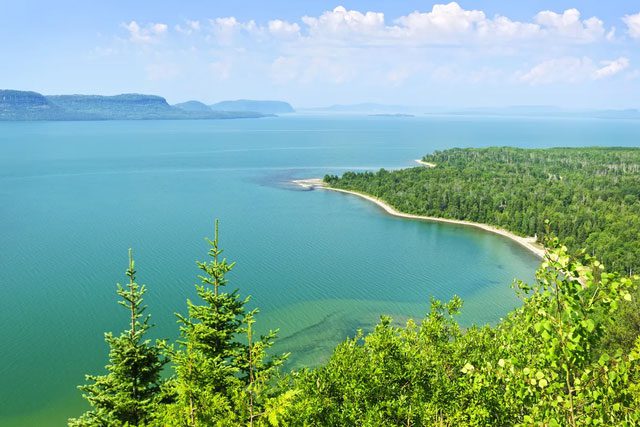The land has a high capacity to absorb water, so why don’t the waters in large lakes seep completely into the ground?
First and foremost, it is important to affirm that there is certainly some water in lakes that has seeped into the ground. People often overlook this because the amount of water lost is quickly replenished by rainfall. Typically, lake water is not absorbed by the soil at a rapid rate. It’s as if there is a magical shield in between that helps retain the water, forming large lakes that can last for hundreds of years.
The phenomenon here is not as difficult to explain as we might think. Imagine someone places a stone slab on the ground and pours a little water on it. The water does not flow through to the other side of the slab. Instead, it spills over.

When water and soil are separated by a layer of rock, the process of water absorption by the soil does not occur.
A similar mechanism occurs with lakes that have a bedrock layer. If there is a lot of rock at the bottom of the lake, there will be very little space in between for water to seep through. When water and soil are separated by rock, the process of water absorption by the soil does not occur.
Even in cases where there are gaps, lakes often accumulate a large amount of sediment such as sand, silt, and clay, which helps fill those gaps. Over time, the bottom of the pond evolves and changes. Settling materials and small particles or sediments fill the larger voids.
However, water can also escape from lakes in other ways – specifically through evaporation. Ultimately, it can be concluded that the higher likelihood of water loss comes from above rather than below. But thanks to a biological phenomenon known as the water cycle, theoretically, the amount of water lost through evaporation will be replenished by rainfall.
In theory, that is the case, but a study published in May 2023 showed that over half of the large lakes in the world (including both natural and artificial lakes) are drying up. According to researchers, 56% of this reduction is due to human consumption and climate warming, which increases the amount of water lost through evaporation.
Therefore, while lakes do not completely seep into the ground over time, the risk of loss due to evaporation is also an issue that humans should pay attention to.


















































